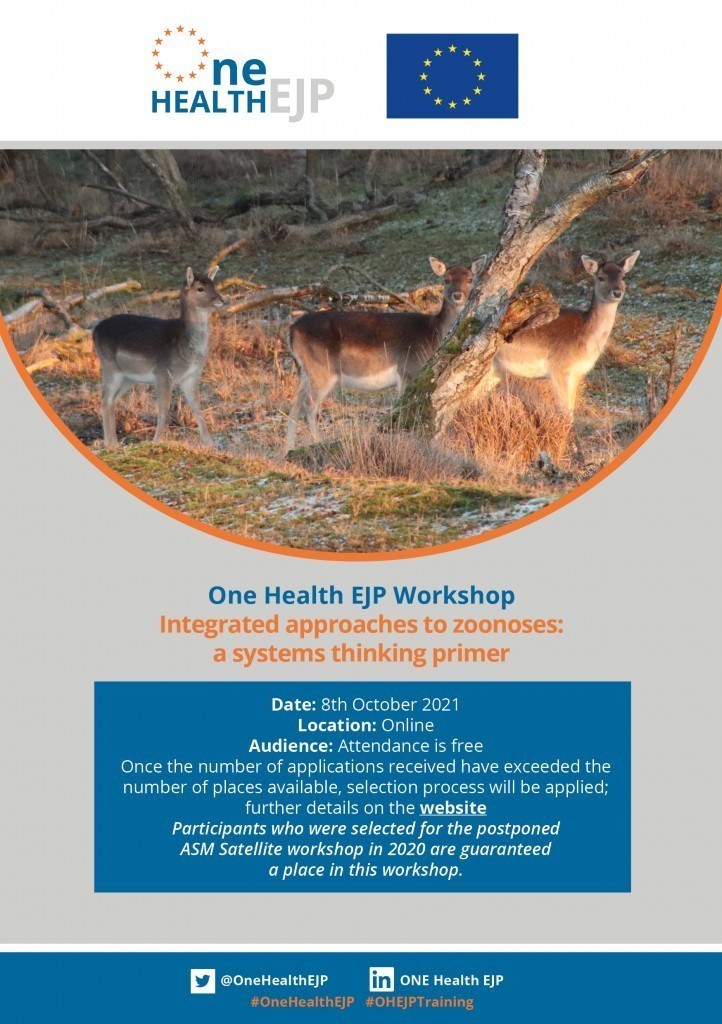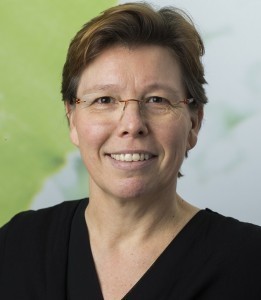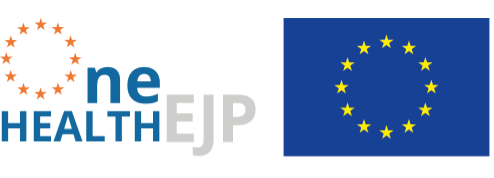When?
8th October 2021
Where?
Online
What was the aim of this workshop?
If COVID-19 started in your country, would it have been tackled with a One Health approach?
The COVID-19 pandemic makes clear that there will always be new and emerging zoonotic diseases that pose a serious threat to human, animal and/or environmental health.
This kind of threat can happen in every country, requesting actions in the different sectors and collaboration between sectors.
In this workshop we inquired how signalling and response is organised in each participant’s country and who plays a role in it. This was done by using examples brought by participants and case studies provided by trainers. We used systems thinking to open the perspective on opportunities to enhance the collaboration between sectors. Systems thinking is a way of looking at and talking about reality that helps us understand and work with complex systems that interact with their environment.
In this workshop we provided the opportunity to:
- Get insight in how signalling and response to zoonoses is organised in each participant’s country and who plays a role
- Get insight in where collaboration between different sectors involved in zoonoses can be improved countries
- Examine what systems thinking is and how it can help tackling wicked (= complex) problems
- Experience systems mapping as a way to draft the context, useful for many situations.

What is Systems Thinking?
In a nutshell, systems thinking is a way of looking at and talking about reality that helps us understand and work with complex systems that interact with their environment.
It helps conceptualising many elements that interact and behave, and that are in their totality at times beyond our capacity to grasp. System thinking allows us to analyse details without losing the sense for the whole. It offers a set of tools for capturing, analysing and communicating about systems.
In the workshop, we looked at stakeholder analysis and system mapping, two tools that are useful for disease management in general.
Our Speakers
Dr Kitty Maassen

Dr. Kitty Maassen is head of the department Animal & Vector of the Center of Zoonoses and Environmental microbiology of the National Institute of Public Health and the Environment of The Netherlands (RIVM). The focus of this department is to study zoonotic agents via wild life and livestock, including antibiotic resistance and via vectors such as ticks and mosquito’s in relation to public health. She is working at the RIVM since 2011. Before, she was also working in the area of zoonoses at the Central Veterinary Institute in Lelystad (currently WBVR). One of her current tasks is coordinating the signalling forum as part of the Dutch integrated risk analysis structure for zoonoses in which (potential) zoonotic signals are discussed and assessed in a monthly meeting with representatives from the human health, veterinary health and food safety sectors. In line with this work she is coordinator of the project COHESIVE of the One Health European Joint Programme.
Dr Simon Rüegg

Simon Rüegg is a veterinary epidemiologist and experienced systems thinker at the University of Zürich, Switzerland. In the frame of the EU COST Action “Network for Evaluation of One Health” he has edited with colleagues “Integrated approaches to health: a handbook for the evaluation of One Health ”, published many peer reviewed articles on the subject, and has been solicited for presentations and workshops by the UN Convention on Biological Diversity (CBD), the American Veterinary Medical Association, the US Defence Threat Reduction Agency and the French CIRAD, among others. For more details please consult his researcher ID profile.


